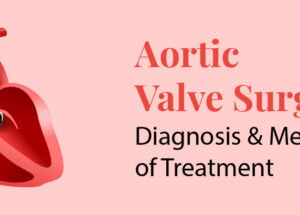How to Prevent Heart Disease?
March 24, 2023

Overview
Heart disease, or cardiovascular disease, is a group of disorders affecting the heart and blood vessels. It is one of the leading causes of death globally. However, many cases of heart disease can be prevented by making lifestyle changes and taking proactive steps to maintain a healthy heart.
Risk factors of heart disease
Several risk factors for heart disease are beyond our control.
-
Age factor
One such factor is age, as the risk of heart disease typically increases as we get older. For example, men who are 45 years or older, and women who are 55 years or older, have a higher risk of developing heart disease.
-
Gender
Gender also plays a role in heart disease risk, with some risk factors impacting women differently than men. For example, estrogen can offer some protection against heart disease in women, but diabetes tends to raise the risk of heart disease more in women than men.
-
Family history
Finally, a family history of heart disease can also increase your risk of developing the condition, mainly if a close family member had heart disease at a young age.
Prevention of heart disease
-
Maintain a healthy diet
A healthy diet is crucial to maintain a healthy heart. You should include foods rich in nutrients, such as fruits, vegetables, whole grains, and lean proteins. Avoid foods that are high in saturated and trans fats, sodium, and added sugars. Eating a diet high in fibre can also help prevent heart disease by lowering cholesterol levels and reducing the risk of developing type 2 diabetes.
-
Exercise regularly
Regular exercise is essential for maintaining a healthy heart. It helps to keep the blood flowing through the heart and blood vessels, reducing the risk of heart disease. Aim for at least 150 minutes of moderate-intensity weekly exercise, such as brisk walking, cycling, or swimming. If you have a sedentary lifestyle, start with small steps, such as taking the stairs instead of the elevator or walking during your lunch break.
-
Manage your weight
Being overweight or obese can increase your risk of developing heart disease. Maintaining a healthy weight through a balanced diet and regular exercise can help to reduce this risk. A body mass index (BMI) between 18.5 and 24.9 is considered healthy. If you are overweight or obese, losing just 5-10% of your body weight can help to improve your heart health.
-
Quit smoking
Smoking is a significant risk factor for heart disease. If you smoke, quitting is the best thing you can do.
-
Manage stress
Stress can have a negative impact on heart health. Chronic stress can cause inflammation in the body, leading to heart disease. Finding healthy ways to manage stress, such as exercise, meditation, or spending time with loved ones, can help to reduce this risk.
-
Monitor your blood pressure and cholesterol
High blood pressure and high cholesterol are major risk factors for heart disease. Regular check-ups with your doctor can help you monitor these levels and make lifestyle changes or take medications as needed to maintain healthy levels.
-
Limit alcohol intake
Excessive alcohol consumption can increase blood pressure and contribute to the development of heart disease.
-
Know your risk
It is essential to be aware of your risk for heart disease. If you are between 40 and 75 and have not previously experienced a heart attack or stroke, you can use the Check. Several factors can increase your risk, including smoking, kidney disease, or a family history of early heart disease. Understanding your risk factors can help you, and your doctor determines your most effective treatment plan. Many risk factors can be improved through changes in your lifestyle.
-
Get enough sleep:
Sleep is essential for overall health, including heart health. In addition, getting enough sleep can help to reduce stress levels and improve blood pressure. Aim for seven to eight hours of sleep per night.
-
Keep your blood pressure and diabetes under control
It’s essential to keep your blood pressure and diabetes under control to reduce the risk of developing coronary heart disease (CHD). To maintain healthy blood pressure, you can adopt a diet low in saturated fat, exercise regularly, and take medication if necessary. Your target blood pressure should be below 140/90mmHg, and it’s recommended that you regularly have your blood pressure checked by a medical professional if you have high blood pressure. If you have diabetes, managing your blood sugar levels by being physically active and controlling your weight and blood pressure is crucial. For individuals with diabetes, the target blood pressure level should be below 130/80mmHg.
Summary
Heart disease is a serious condition affecting millions worldwide. However, many cases of heart disease can be prevented by making lifestyle changes and taking proactive steps to maintain a healthy heart. Following these tips can reduce your risk of developing heart disease and improve your overall health and well-being. See a doctor for heart disease if you experience chest pain, shortness of breath, irregular heartbeat, or swollen legs. Consult a cardiologist.
People also ask
1. What are 10 ways to prevent heart disease?
There are several ways to prevent heart disease, including:
- Don’t smoke or use tobacco products
- Maintain a healthy weight
- Exercise regularly
- Eat a healthy diet low in saturated and trans fats, salt, and added sugars and high in fruits, vegetables, whole grains, lean protein, and healthy fats.
- Limit alcohol consumption
- Manage stress levels
- Get enough sleep
- Control high blood pressure, cholesterol, and diabetes
- Take prescribed medications as directed by a doctor
- Stay up-to-date with recommended health screenings and check-ups
2. How can I make my heart stronger?
There are several ways to strengthen your heart, including:
- Engage in regular physical activity, such as brisk walking, running, cycling, swimming, or strength training
- Eat a heart-healthy diet low in saturated and trans fats, salt, and added sugars and high in fruits, vegetables, whole grains, lean protein, and healthy fats.
- Control high blood pressure, cholesterol, and diabetes
- Manage stress levels
- Get enough sleep
- Don’t smoke or use tobacco products
3. What are six foods that prevent heart disease?
- Fatty fish like salmon, tuna, and sardines, which are high in omega-3 fatty acids
- Nuts like almonds, walnuts, and pistachios, which are high in healthy fats and fibre
- Berries like blueberries, raspberries, and strawberries, which are high in antioxidants and fibre
- Whole grains like oats, quinoa, and brown rice, which are high in fibre and other nutrients
- Leafy greens, like spinach, kale, and collard, are high in vitamins, minerals, and antioxidants.
- Legumes like beans, lentils, and chickpeas are high in fibre, protein, and other nutrients.








